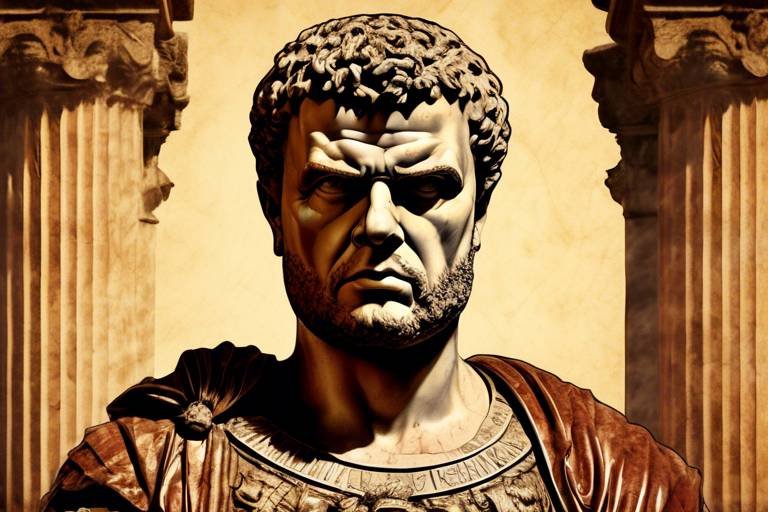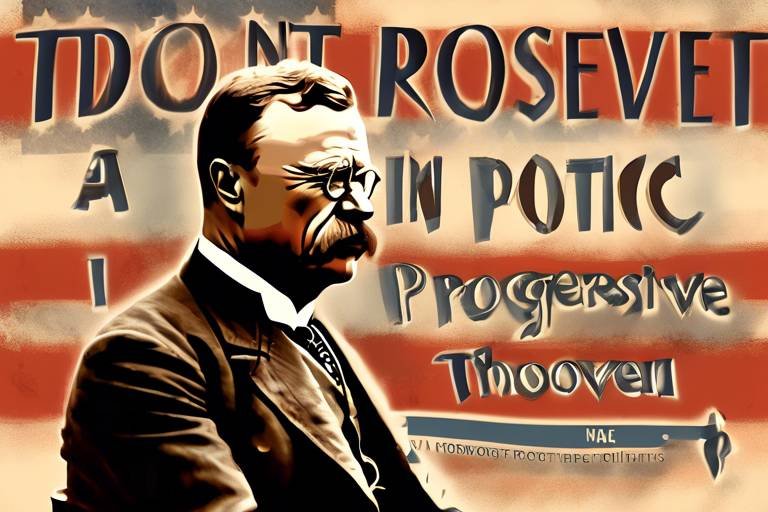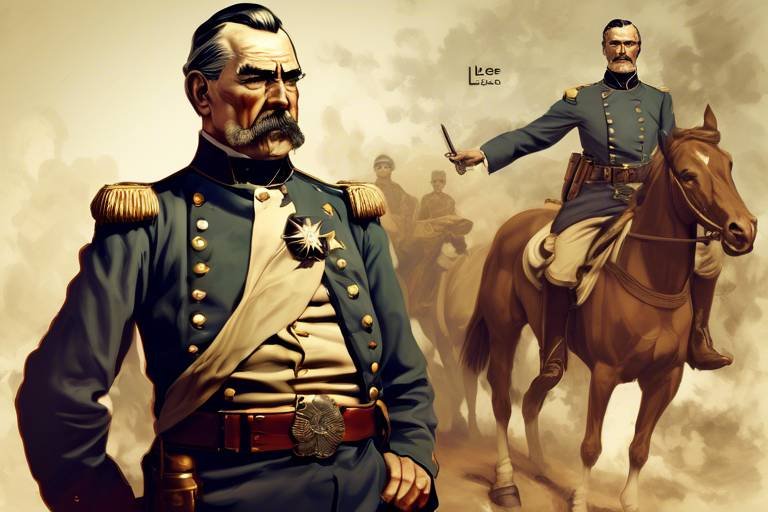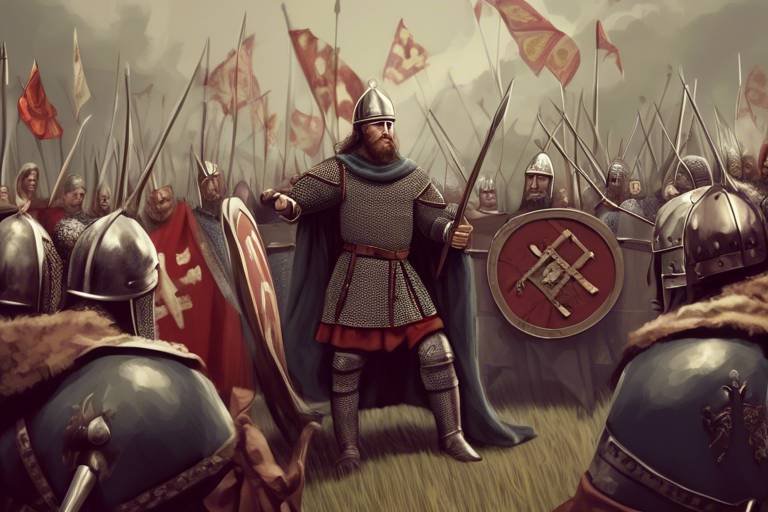Richard the Lionheart: The Crusader King
Richard the Lionheart, also known as Richard I, was a formidable medieval monarch whose legacy continues to captivate historians and enthusiasts alike. Renowned for his valiant exploits in the Crusades and his reputation as a warrior king, Richard's life was marked by intrigue, military prowess, and political challenges.
Born in 1157 in Oxford, England, Richard was the third son of King Henry II and Eleanor of Aquitaine. Despite facing familial strife and power struggles within the royal household, Richard's upbringing instilled in him a sense of duty and ambition that would shape his future as a ruler.
Ascending to the throne in 1189 following the death of his father, Richard faced immediate challenges to his authority both at home and abroad. His coronation marked the beginning of a tumultuous reign characterized by military campaigns, diplomatic negotiations, and personal rivalries.
Richard's military campaigns, particularly his involvement in the Third Crusade, solidified his reputation as a fearless leader on the battlefield. Leading Christian forces against the formidable Muslim armies led by Saladin, Richard's strategic acumen and martial skill were on full display in key battles such as the Siege of Acre and the Battle of Arsuf.
The dynamic between Richard the Lionheart and Saladin, his adversary in the Holy Land, was marked by mutual respect and fierce competition. Despite their differences in faith and culture, both leaders recognized each other's prowess and valor, leading to a complex relationship that defined the Third Crusade.
Richard's impact on the Holy Land was profound, shaping the geopolitical landscape of the region for years to come. His efforts to secure key territories and fortresses, as well as his attempts to forge alliances with local rulers, left a lasting imprint on the history of the Crusades and the Levant.
However, Richard's military victories were not without setbacks. In 1192, he was captured and held for ransom by Leopold V, Duke of Austria, on his return journey from the Holy Land. His imprisonment sparked a diplomatic crisis and a race against time to secure his release, highlighting the precarious nature of medieval power dynamics.
During Richard's absence, England faced political turmoil and challenges to the royal succession. The vacuum of power created by his capture led to internal strife and external threats, testing the resilience of the English monarchy and the stability of the realm.
Richard the Lionheart's legacy endures through the ages, immortalized in literature, art, and popular culture. His image as a chivalric hero and a warrior king has inspired generations of storytellers and historians, shaping the way we remember the medieval world and its larger-than-life figures.
Historiographical debates surrounding Richard's reign continue to spark controversy and scholarly inquiry. Interpretations of his policies, character, and achievements vary among historians, leading to a rich tapestry of perspectives on his role in shaping the course of European history.

Early Life and Ascension to the Throne
Richard the Lionheart, also known as Richard I, was born on September 8, 1157, in Oxford, England, as the third son of King Henry II and Eleanor of Aquitaine. Growing up in a royal family, Richard received a comprehensive education and training in warfare, leadership, and diplomacy. Despite facing challenges and conflicts within his family, Richard's military prowess and strategic acumen distinguished him from an early age.
Upon the death of his father, King Henry II, in 1189, Richard ascended to the throne of England. His coronation marked the beginning of a tumultuous yet remarkable reign characterized by military campaigns, diplomatic negotiations, and legendary exploits on the battlefield. Richard's reputation as a fearless and skilled warrior king quickly solidified, earning him the epithet "Lionheart" for his bravery and ferocity in combat.
Richard's early life and ascension to the throne set the stage for his future endeavors as a crusader king, shaping his legacy as one of the most renowned medieval monarchs in history. His leadership during this period would not only impact the course of the Crusades but also leave a lasting imprint on the political landscape of Europe and the Holy Land.

Military Campaigns and the Third Crusade
Exploring the life and legacy of Richard the Lionheart, a renowned medieval monarch known for his role in the Crusades and his fierce reputation as a warrior king.
Richard's upbringing, family background, and the events leading to his coronation as King of England.
Richard the Lionheart was a formidable military leader, known for his strategic prowess and bravery on the battlefield. His military campaigns were marked by decisive victories and bold maneuvers that solidified his reputation as a fearsome warrior king. One of the most significant chapters in Richard's military career was his participation in the Third Crusade, a major Christian expedition to the Holy Land to reclaim Jerusalem from Muslim rule.
During the Third Crusade, Richard engaged in intense battles against Saladin, the renowned Muslim leader. These clashes were fierce and bloody, with both sides displaying remarkable skill and determination. Despite facing numerous challenges, Richard's leadership and military acumen played a crucial role in shaping the outcome of the campaign.
The dynamic between Richard the Lionheart and Saladin during the Third Crusade was complex and multifaceted. While they were adversaries on the battlefield, there was a mutual respect and admiration between these two formidable leaders. Their interactions, both on and off the battlefield, highlighted the intricacies of medieval warfare and diplomacy.
Richard's presence in the Holy Land left a lasting impact on the region. His military campaigns and efforts to secure key territories reshaped the political landscape of the Holy Land and influenced the course of history for centuries to come. The legacy of his actions continues to be felt in the region to this day.
Despite his military successes, Richard the Lionheart faced setbacks, including his imprisonment in Austria while returning from the Crusade. His capture and subsequent ransom were significant events that tested his resilience and resourcefulness. The negotiations for his release were intricate and challenging, showcasing the political complexities of the medieval world.
Richard's absence due to his imprisonment posed political challenges in England, leading to power struggles and uncertainty regarding his succession. The kingdom faced turmoil and instability in his absence, underscoring the importance of strong leadership and stability in medieval monarchies.
Richard the Lionheart's legacy transcends his military exploits and political struggles. His enduring impact on history is evident in the way he is portrayed in literature, art, and popular culture. The image of the Crusader King continues to captivate audiences and inspire fascination with the medieval era.
The interpretation of Richard the Lionheart's reign has sparked intense debates among historians and scholars. The historiographical debates surrounding his legacy shed light on the complexities of medieval rulership and the challenges of historical interpretation. The controversies surrounding Richard's image as a ruler reflect the enduring interest in his life and reign.

Relationship with Saladin
Richard the Lionheart's relationship with Saladin, the Muslim leader, during the Third Crusade was marked by a mixture of respect, rivalry, and strategic maneuvering. Despite being fierce adversaries on the battlefield, both Richard and Saladin recognized each other's military prowess and leadership qualities. Their interactions were characterized by a delicate balance of conflict and diplomacy, as they engaged in negotiations, alliances, and occasional truces amidst the chaos of war.
Saladin, known for his chivalry and honor, earned Richard's admiration for his courage and tactical acumen. The two leaders, separated by religious and cultural differences, shared a mutual understanding of the brutal realities of medieval warfare. Their encounters on the battlefield were legendary, with each displaying valor and skill that commanded the respect of their troops and adversaries alike.
Despite their mutual respect, Richard and Saladin were ultimately driven by their unwavering commitment to their respective causes. While Saladin sought to defend the Holy Land and uphold the principles of Islam, Richard was determined to reclaim Jerusalem and establish Christian dominance in the region. This clash of ideologies and ambitions fueled the intense rivalry between the two leaders, shaping the course of the Third Crusade and defining their legacy in history.

Impact on the Holy Land
Richard the Lionheart's impact on the Holy Land was profound and far-reaching, shaping the region for years to come. His military campaigns during the Third Crusade left a lasting imprint on the landscape and the people of the Holy Land. Richard's fierce reputation as a warrior king instilled fear in his enemies and admiration among his allies, solidifying his legacy as a formidable leader.
One of the key impacts of Richard's presence in the Holy Land was the strategic advantage he brought to the Crusader forces. His military prowess and tactical acumen enabled the Christian armies to achieve significant victories against their Muslim adversaries, reclaiming territories and fortresses that had long been held by the enemy.
Richard's policies and governance in the Holy Land also left a mark on the local population. While his rule was characterized by strict discipline and harsh measures against dissent, it also brought a sense of stability and order to the war-torn region. His efforts to consolidate power and establish Christian control over key territories laid the foundation for future Crusader endeavors.
Furthermore, Richard's interactions with local leaders and communities in the Holy Land had a lasting impact on interfaith relations. Despite the religious tensions of the time, Richard's diplomatic skills and respect for his Muslim counterparts, including his renowned adversary Saladin, set a precedent for future engagements between Christian and Muslim powers in the region.
In conclusion, Richard the Lionheart's impact on the Holy Land cannot be overstated. His military campaigns, governance policies, and diplomatic efforts shaped the course of history in the region and left a legacy that continues to be studied and debated by historians and scholars to this day.

Imprisonment and Ransom
Exploring the life and legacy of Richard the Lionheart, a renowned medieval monarch known for his role in the Crusades and his fierce reputation as a warrior king.
Richard the Lionheart's journey was not without its trials and tribulations. During his return from the Holy Land in 1192, he faced a series of challenges that would test his resilience and determination. Near Vienna, Richard was captured by Leopold V, Duke of Austria, who held him captive and demanded a hefty ransom for his release.
Imprisoned in the remote castle of Dürnstein, Richard's confinement became a focal point of political intrigue and diplomatic negotiations. The news of his capture spread like wildfire across Europe, sparking concerns among his loyal subjects in England and allies abroad.
As the days turned into weeks and the weeks into months, Richard's captors pressed for a substantial ransom, setting a staggering price for the release of the valiant king. The demands for gold and silver strained the coffers of England and tested the loyalty of Richard's supporters, who scrambled to gather the required sum.
Despite the challenges and setbacks, Richard's unwavering spirit and the relentless efforts of his supporters eventually led to a breakthrough in the negotiations. Through a complex web of diplomatic maneuvers and financial arrangements, the ransom was secured, paving the way for Richard's long-awaited liberation.
On February 4, 1194, after spending over a year in captivity, Richard the Lionheart was finally set free, marking the end of a tumultuous chapter in his illustrious reign. His release brought joy and relief to his subjects, who celebrated his return with fervor and gratitude.
The episode of Richard's imprisonment and ransom not only tested his mettle as a leader but also showcased the enduring loyalty and dedication of those who stood by him in his darkest hour. It remains a poignant chapter in the saga of the Crusader King, underscoring the challenges and sacrifices inherent in the pursuit of greatness.
- Was Richard the Lionheart successful in securing his release?
- How did Richard's imprisonment impact the political landscape of England?
- What role did diplomatic negotiations play in the ransom process?
- What was the significance of Richard the Lionheart's liberation for his subjects?

Political Challenges and Succession
During Richard the Lionheart's absence on the Third Crusade, England faced significant political challenges and uncertainties regarding succession. With the king away leading military campaigns in the Holy Land, the governance of the kingdom was left in the hands of regents and officials, leading to power struggles and internal conflicts.
The absence of a strong central authority in England during this period created a vacuum that various factions sought to exploit for their own gain. Noble families vied for influence and control, leading to instability and unrest across the realm. The lack of clear leadership and the uncertainty surrounding Richard's return exacerbated these tensions.
Moreover, the question of succession loomed large over England as Richard the Lionheart's own heir was a subject of debate and contention. The issue of who would inherit the throne in the event of Richard's death or continued absence fueled political rivalries and intrigue, further complicating the already tumultuous situation.
Amidst these political challenges, the realm grappled with the need for stability and continuity in governance. The absence of a strong and decisive ruler like Richard the Lionheart tested the resilience of England's political institutions and highlighted the importance of effective leadership in times of crisis.

Legacy and Historical Significance
Richard the Lionheart left behind a legacy that continues to captivate historians and enthusiasts alike. His fearless leadership and military prowess have solidified his place in history as a legendary figure of the medieval era. Richard's impact on the Holy Land during the Third Crusade reverberates through time, shaping the course of history in the region.
One key aspect of Richard's historical significance lies in his portrayal in literature, art, and popular culture. From epic poems to modern films, Richard the Lionheart's character has been immortalized in various mediums, each offering a unique perspective on his life and achievements. His chivalry, bravery, and unwavering dedication to the Crusades have inspired countless works of art and literature.
Moreover, Richard's legacy extends beyond his military conquests. His reign as King of England marked a period of significant political and social change, influencing the development of the English monarchy and shaping the nation's identity. The image of Richard the Lionheart as a noble and valiant ruler has endured through centuries, leaving a lasting impact on the collective memory of the British people.
Historians and scholars continue to debate the true historical significance of Richard the Lionheart. While some view him as a heroic figure who defended Christendom and upheld the ideals of chivalry, others criticize his ruthless tactics and the human cost of his military campaigns. These historiographical debates shed light on the complexities of Richard's character and the multifaceted nature of his legacy.
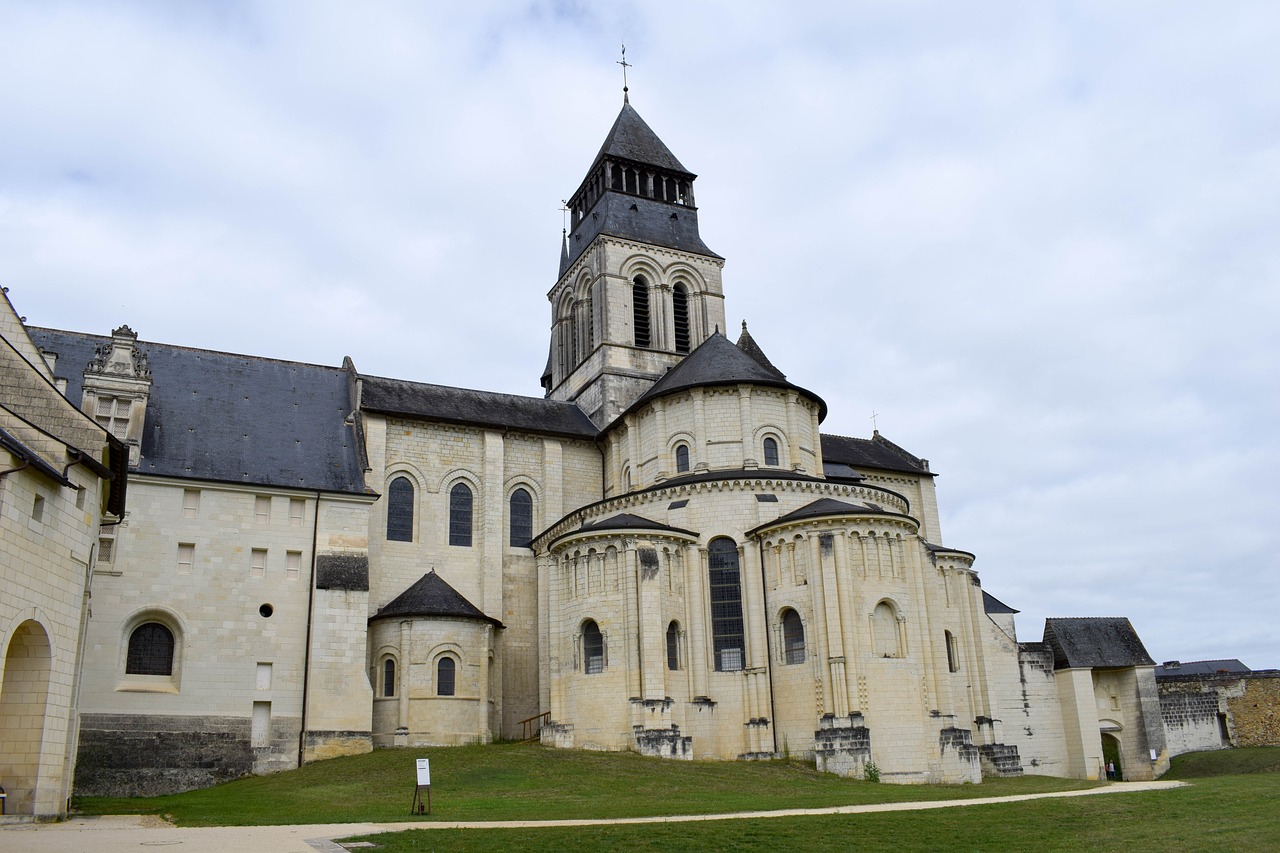
Historiographical Debates
Historiographical debates surrounding Richard the Lionheart have long captivated historians and scholars, sparking intense discussions and differing viewpoints on his reign. One of the key areas of contention revolves around Richard's reputation as a warrior king and his military prowess. Some argue that his military campaigns, particularly during the Third Crusade, solidified his status as a legendary figure in medieval history, showcasing his strategic brilliance and leadership skills on the battlefield. On the other hand, critics point to the high cost of his military adventures and the limited long-term impact of his actions in the Holy Land, questioning the true extent of his achievements.
Another point of debate centers on Richard's character and governance style. While some portray him as a chivalrous and virtuous ruler, upholding the ideals of knighthood and honor, others paint a more complex picture of a ruthless and ambitious monarch willing to sacrifice morality for political gain. These contrasting portrayals highlight the challenges of interpreting historical figures through modern lenses, where perceptions of heroism and villainy can vary widely.
Furthermore, historians continue to grapple with the question of Richard's legacy and his place in the broader narrative of medieval Europe. Some argue that his reign marked a pivotal moment in the history of the Crusades, shaping the geopolitical landscape of the time and influencing future conflicts in the region. Others contend that Richard's impact was more limited, overshadowed by the larger forces at play during the medieval period.
In conclusion, the historiographical debates surrounding Richard the Lionheart offer a fascinating glimpse into the complexities of interpreting historical figures and events. By delving into these differing perspectives, scholars gain a deeper understanding of the nuances of Richard's reign and the enduring legacy he left behind.
Frequently Asked Questions
- Who was Richard the Lionheart?
Richard the Lionheart, also known as Richard I of England, was a medieval monarch who ruled England from 1189 to 1199. He was renowned for his military prowess and leadership during the Third Crusade.
- What were Richard the Lionheart's major accomplishments?
Richard the Lionheart is best known for his role in the Third Crusade, where he led campaigns in the Holy Land against Saladin. He also successfully defended his kingdom against various threats and expanded his territories through military conquests.
- Why is Richard the Lionheart considered a significant historical figure?
Richard the Lionheart is considered significant due to his military achievements, his reputation as a warrior king, and his impact on the history of the Crusades. He is often portrayed as a symbol of chivalry and valor in medieval history.
- What was the relationship between Richard the Lionheart and Saladin?
Richard the Lionheart and Saladin, the Muslim leader, had a complex relationship during the Third Crusade. Despite being adversaries on the battlefield, they also demonstrated mutual respect and admiration for each other's military skills.
- How did Richard the Lionheart's imprisonment impact his reign?
Richard the Lionheart's imprisonment following his capture had significant political and financial implications. It led to power struggles in England and the need for a substantial ransom to secure his release, impacting the stability of his kingdom.











